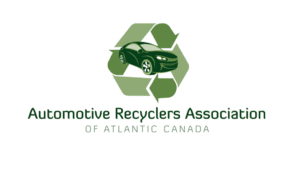Canberra, Australia — The Motor Trades Association of Australia (MTAA) and the Federal Chamber of Automotive Industries (FCAI) are working on a comprehensive business plan to deliver a road map for an end-of-life vehicle recycling scheme under the National Product Stewardship Program.
In late March, Sussan Ley, Australia’s federal environmental minister, and Trevor Evans, assistant minister for waste reduction and environmental management announced a Commonwealth Government grant of $1 million to the FCAI to promote the recycling of the nation’s ELVs. MTAA CEO Richard Dudley said the FCAI and MTAA are partnering to develop a plan to identify all automotive waste from end-of-life vehicles and opportunities to enhance or introduce ways to recycle it.
“The FCAI represents the world’s car manufacturers and MTAA and Member Associations who have the entire automotive supply chain, including vehicle parts suppliers, dismantlers and recyclers as constituents, are ideally placed to combine their knowledge and undertake the work,” said Dudley. “Work is well underway, and the result will be a comprehensive, evidence-based road map to implement a national recycling scheme by the end of 2023.”
More than 700,000 passenger vehicles reach end-of-life in Australia each year, said Dudley, adding that there is an opportunity to streamline and harmonize decommissioning and dismantling processes, environmental requirements and business-to-business linkages in an effort to minimize landfills and maximize recycling opportunities.
The grant was spurred by both advocacy and representations by the MTAA and its Members to the Commonwealth Government to bring Australia into line with other OECD countries and have a consistent harmonized policy and regulations for the decommissioning and recycling of motor vehicles.
Dudley said the project with FCAI as the lead would support and ensure that more elements such as textiles, plastics, and electronic components can be recycled.
“We are excited as this will be the penultimate step to introducing a formidable end-of-life car recycling scheme and enable Australia to be better prepared for the transition of the national vehicle fleet from internal combustion engines to electric,” Dudley said.
It is expected the project will be completed in 13 months.























